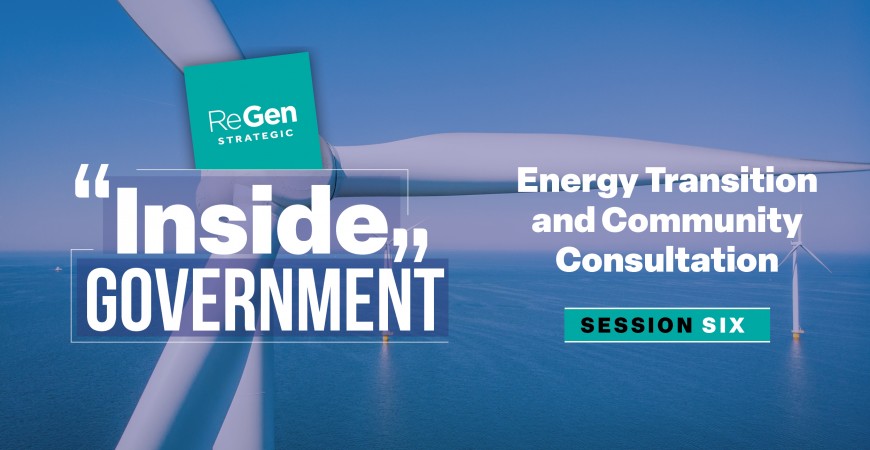At times it feels like Australia’s energy transition is hinging on the outcomes of town hall meetings in regional communities around the country.
If these were a measure of overall public support – or satisfaction with the consultation process – then Australia’s ability to achieve net zero is in trouble.
This was seen in recent months with the public opposition to an offshore wind zone in South West WA, closely mimicking protests and opposition in the Hunter and Illawarra regions in NSW, as well as the Gippsland region in Victoria.
While some of this opposition was supported by spurious claims about impacts to whales or marine noise, it would be hard to view these information sessions as a success.
Taken on face value, there is rising community concern about the impacts to amenity and the environment posed by some of the largest pillars of the energy transition, whether it be offshore wind, solar farms or green hydrogen.
Regardless of the facts behind these claims, government agencies and proponents will need to sharpen their focus on providing timely and digestible information to affected communities.
Like many efforts to successfully engage communities through periods of change or uncertainty, it is often more critical – and certainly more time-consuming – to counter perceptions of the issue rather than continue to explain the issue itself.
In a world that provides instant access to facts (as well as alternative facts) to everyone that wants them, the usual methods of engagement have been thrown upside down.
Social media has created rabbit warrens of information, some good and some bad, which are either being sought out by members of the public or pushed by the omnipresent algorithm.
It is difficult for a well-meaning proponent or government agency to keep up.
Perhaps it has never been the case, but it is a truly rare thing to speak with an audience that is broadly open to changing its mind.
The difficulty in moving perceptions that are baked-in by political talking points and social media algorithms will not be solved by a six-point agenda and twelve slides of boilerplate PowerPoint.
While the climate debate is noisy, there is a high level of public acceptance for the need to transition from gas to renewables. The sticking points, which have been weaponised politically, are the methods and costs of this transition.
These divergent views are weaving through the current discussion about the potential sources of energy and the means to deliver these to households, industry and export partners.
Governments and political parties have shown an eagerness to explore most solutions, to the point where some are advertising their open-mindedness as ‘technology-agnostic’.
The levels of cynicism and community opposition to change through the energy transition will also be technology-agnostic.
Don’t be surprised when the backers of nuclear power in Australia, once potential sites are named, find themselves facing a ferocity of local opposition that is equal to what was seen by counterparts in the offshore wind industry.
ReGen Strategic has an extensive track record of supporting effective community engagement, with a focus on addressing the long-term objectives sought by government agencies or proponents.
With this end-point in mind, it helps guide discussion and negotiation with engaged community members, while providing room for community concerns to be aired.
Importantly, it is incumbent on governments and proponents to reach community members who are not readily engaged.
Community events and tailored messaging to hard-to-reach sections of the community can be informed by quantitative and qualitative research, including polling, surveys, focus groups and workshops.
While history might be made by those who show up, the future will be voted on by everyone. And we will all need to live with the consequences of how well we respond to the energy transition.
 ReGen Strategic
ReGen Strategic